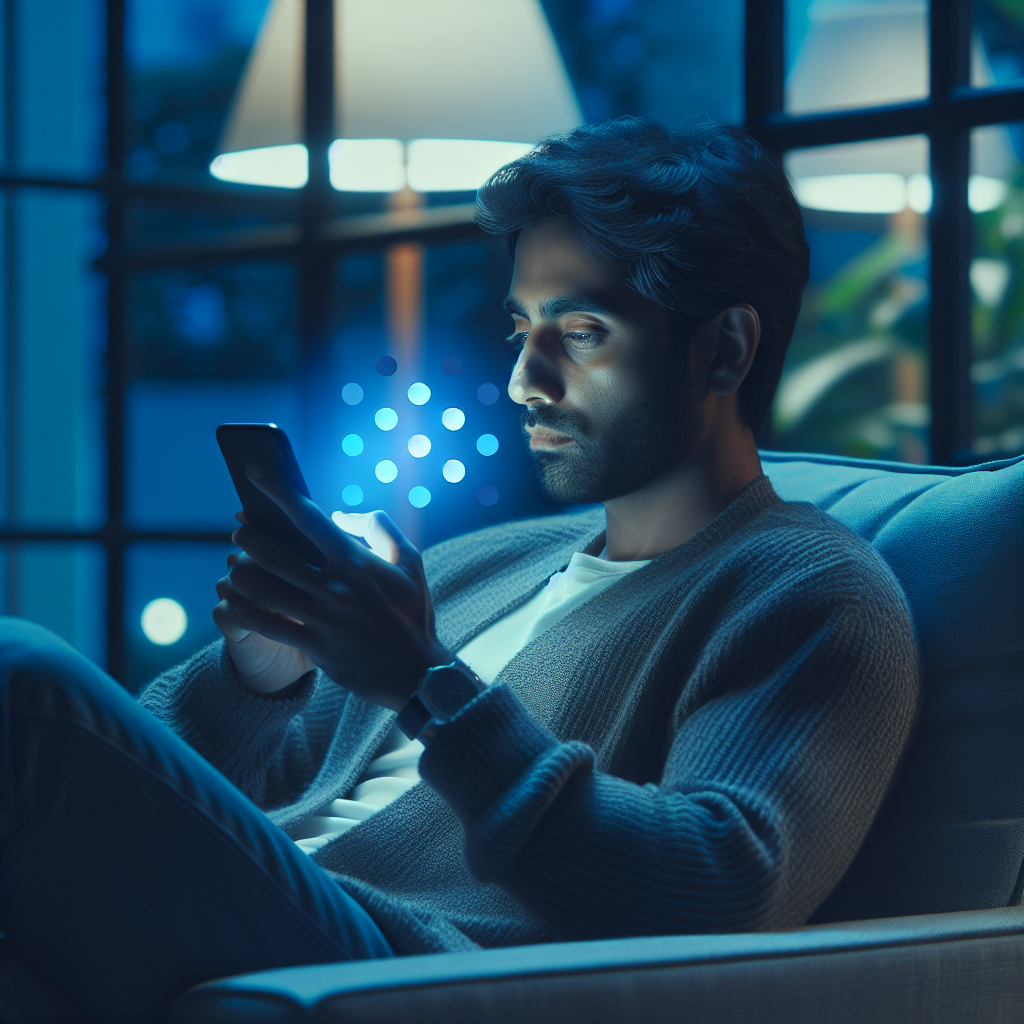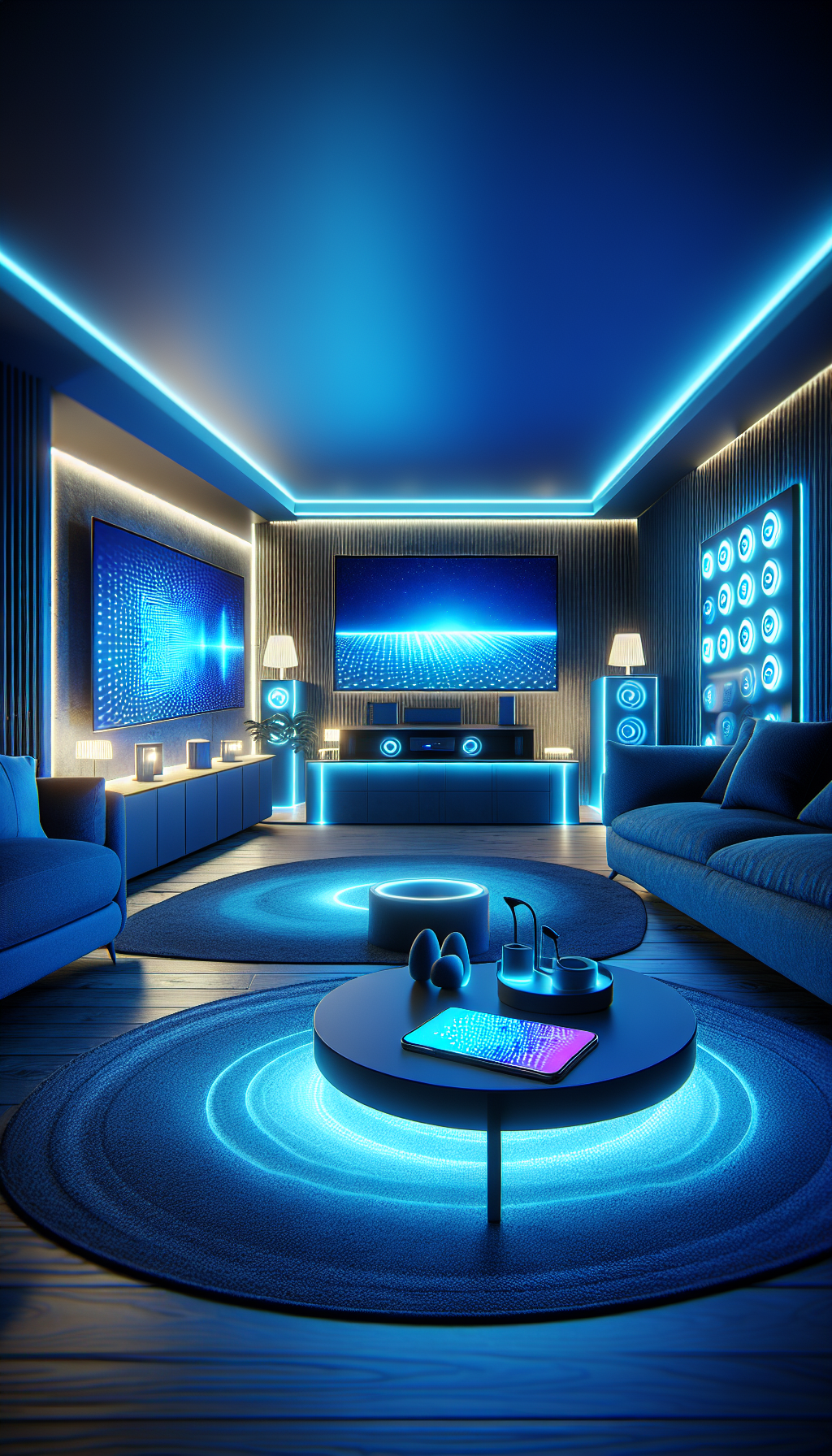In an age where screens have become an integral part of our daily lives, the exposure to blue light has increased more than ever before. The glow from our smartphones, tablets, and laptops is not just a source of information and entertainment but also a source of blue light, which can have profound effects on our brain health and sleep patterns.
Understanding Blue Light
Blue light is a part of the visible light spectrum that can be seen by the human eye. It has a short wavelength, which means it produces higher amounts of energy. Studies suggest that exposure to blue light can have both positive and negative effects on our health. During the day, blue light can be beneficial; it can boost attention, reaction times, and mood. However, it is the exposure during the evening that raises concerns.
Blue Light and the Circadian Rhythm
The circadian rhythm is a natural, internal system that regulates the sleep-wake cycle and repeats roughly every 24 hours. It can be altered by environmental cues, with light being the primary influence. Blue light, in particular, has a strong effect on the regulation of this rhythm because it inhibits the production of melatonin, the hormone responsible for promoting sleep.
For further reading on the intricate balances of our body’s functions, the article on Brain Health provides a comprehensive overview of how various factors contribute to cognitive well-being.
Blue Light’s Impact on Sleep
As night falls, the reduction in light signals our body that it’s time to rest. However, with the prevalent use of electronic devices that emit blue light, our bodies receive the wrong signal, leading to disrupted sleep patterns. This can result in difficulty falling asleep, shorter duration of sleep, and poorer quality sleep, which can have a cascade of negative effects on brain health.
Blue Light and Brain Health
Lack of proper sleep due to excessive exposure to blue light has been linked to several cognitive issues. It can affect memory retention, learning, and even emotional regulation. Over time, chronic sleep disruption may increase the risk of neurological disorders, such as depression and anxiety.
To delve deeper into the benefits of a good night’s sleep for cognitive function, consider reading about the Cognitive Benefits of Regular Physical Activity.
Strategies to Mitigate the Effects of Blue Light
Use of Blue Light Filters
Many digital devices now come with built-in blue light filters that can be activated to reduce exposure, especially in the evening. These filters adjust the color temperature of the screen to minimize the amount of blue light emitted.
Establishing a Screen-Free Routine
Creating a routine that avoids the use of screens at least one hour before bedtime can significantly improve sleep quality. Instead, engage in relaxing activities such as reading a book, practicing The Benefits of Yoga for Cognitive Enhancement, or meditating.
Proper Lighting Environment
It’s important to create a lighting environment conducive to good sleep. Using dim red lights for night lights can be helpful as red light has a lesser effect on the circadian rhythm and melatonin production.
Regular Sleep Schedule
Maintaining a consistent sleep schedule helps to regulate the body’s internal clock and can improve long-term sleep quality.
External Resources Supporting Blue Light Research
- The Sleep Foundation provides detailed insights into how blue light affects sleep and ways to mitigate its effects (Sleep Foundation).
- The National Institute of General Medical Sciences offers an in-depth look at circadian rhythms and their importance (NIGMS).
- Harvard Health has published findings on blue light’s impact on sleep and disease (Harvard Health).
The Overall Importance of Managing Blue Light Exposure
The management of blue light exposure is essential for maintaining brain health and ensuring restorative sleep. By understanding the potential risks and taking proactive steps, we can mitigate the negative impacts on our sleep-wake cycles, bolster our cognitive functions, and enhance overall well-being.
For those who work late or have shifting schedules, incorporating strategies for effective sleep and brain health is crucial. Reading about Brain Health Strategies for Shift Workers can offer additional insights into maintaining cognitive health under challenging conditions.
In conclusion, while technology continues to advance and integrate into all aspects of our lives, it is vital to remain aware of the side effects associated with prolonged exposure to blue light. By adopting healthy habits and making informed choices, we can enjoy the benefits of our digital devices without compromising our brain health and sleep patterns.



